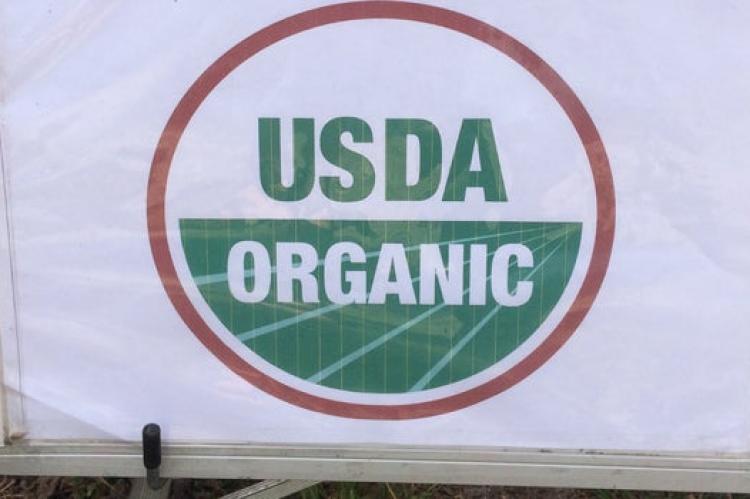5 Things Every CBD Company Needs To Know About USDA Certification
The USDA's National Organic Program is a great way for brands to stand out from the competition. But getting approved isn't easy.
There is no doubt that the USDA’s organic certification program can increase transparency and trust for your CBD brand. But the audit process is also rigorous—the USDA must review your manufacturing facility design and production process plans with the ultimate goal of increasing supply chain sustainability.
Here are five things every CBD company should know about USDA organic certification:
1. Consumers want organics
According to a recent Bloomberg report, COVID-19 has accelerated organic food sales in the U.S. due to increased demand for health-conscious foods and drinks. Sales of organic food and drinks surged 25 percent during the 17-week period ended June 27, according to Nielsen data.
The concept of “clean label products” is a global, consumer-driven movement that can’t be ignored. Product labels can be viewed as confusing or misleading when consumers don't understand all of the ingredients, which is why certified organic is an important choice for reassuring and comforting wary shoppers. Organic certification allows consumers to feel more confident about the products they’re purchasing.
According to researchers, "Health-minded individuals are more likely to purchase organic food. Health reasons for buying organics often include a general ‘It's healthier than conventional’ statement from consumers, and 34% of individuals in one poll said they want to avoid toxins in their food that they perceive as unhealthy.”
USDA certification also provides quality assurance to skeptical consumers, especially those who avidly read product labels before making a purchasing decision. Members of this “label reader” demographic will consistently choose organic products for the quality and transparency it provides with pure and natural ingredients. The USDA certified organic seal is one of the industry’s true “gold standards.” Other certifications just don't hold the same weight.
Related: CBD Companies Are Making False Claims About Coronavirus
2. Certification is a tough process
Going organic with CBD requires a significant amount of research, planning, and financial investment into advancing quality and regulatory programs. Many companies are unable to undertake these steps. Quality standards must be integrated and evaluated at every level of the process, including the supply chain, creating additional complexities to certification.
Despite the hurdles, organic certification is an opportunity to invest in your brand to become an industry leader while differentiating yourself from the competition. Although it’s a challenging process, with a smart team, a little creativity, and a serious commitment to problem-solving, achieving certification is well worth the hard work.
3. Organic contributes to sustainability.
According to the USDA, organic farming and production processes can improve water quality, conserve energy, increase biodiversity, and contribute to soil health. Organic farming also promotes and protects soil ecology and water quality. By becoming more conscious about what goes into organic products, industry leaders can drive the industry into green pastures.
4. Being USDA organic elevates your brand above the competition.
Currently, only a handful of CBD brands are willing, or even able, to be certified organic. USDA certification is an opportunity for brands looking to adapt to changing consumer preferences, take quality to the next level, and invest in supply chain transparency.
In the past, product differentiators involved third-party lab testing or providing COAs — today, that’s just industry standard. The USDA organic seal is now becoming one of the hemp industry’s most coveted certifications because of conclusions drawn by consumers.
Related: The Top 5 CBD Gummies on the Market Right Now
5. Organic is good for the industry.
It’s no secret that the hemp industry suffers from a legitimacy problem. The more brands that come organically certified, the more the industry as a whole improves trust with consumers, suppliers, and manufacturers.
For consumers, USDA organic certification increases their confidence in the brands they already love, provides the perception of healthier choices, and allows much tighter traceability of organic ingredients and processes. For manufacturers, it’s all about increasing trust with organic suppliers.
Organic certification strengthens quality as well as processing systems with a consumer-friendly approach for ingredient products. Establishing common industry benchmarks will only help better shape the conversation around quality.
- Log in to post comments

